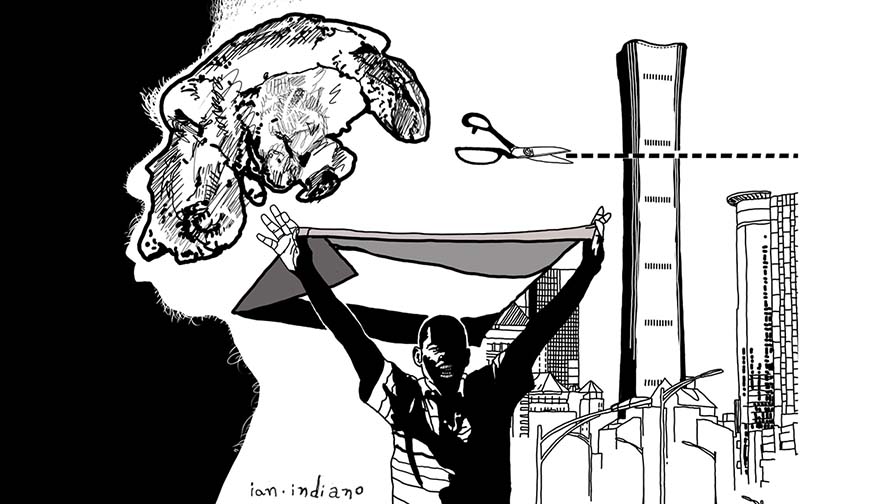Off the radar: What's going on in the world
 CREDIT: IAN INDIANO
CREDIT: IAN INDIANOHere are five news stories from around the world that you should be paying attention to.
The way you dress is how you present yourself to the world. Clothes can be a powerful political tool to express ideas and struggles. For many, they are a form of expression; a way to create a dialogue between you and the environment that surrounds you. Even if your style is discrete or apparently inexistent, it still tells a lot about how you interact with the world.
But to respond to the world, we need to be aware of what is going on. Here are five news stories from around the world that you should be paying attention to.
New human ancestor identified in Africa
After re-examining an ancient fossil found in Bodo D’ar, Ethiopia, scientists realized they were looking at a “new” human species that lived in Africa more than half a million years ago. They named it Homo bodoensis. The team of scientists were led by Winnipeg University’s palaeoanthropologist Mirjana Roksandic. According to the study, the Homo bodoensis lived during the Middle Pleistocene period and can be considered a direct ancestor of modern humans. The Middle Pleistocene period is considered to be the basis to the appearance of the Homo sapiens (us) in Africa and the Homo nearderthalensis in Europe.
China’s new restriction on “super high-rise” buildings
As a part of a larger bid to crack down on what it called “vanity projects,” China has restricted smaller cities from building super high-rise buildings. The new rules establish a height limit according to the population of each city. For example, cities with less than three million people cannot build skyscrapers taller than 492 ft. Their argument is that low-density cities are needed to build skyscrapers. Therefore, those projects were built for vanity, not practicality. Although the new rules allow special exemptions, approving projects that violate these rules can result in a “lifelong accountability.”
Pope calls for radical action on climate change
A week before the United Nations climate conference in Glasgow, Scotland, Pope Francis called on world leaders to provide “effective responses” and offer “concrete hope” to the environmental emergency and future generations. Speaking from the Vatican, the Pope urged the world to respond to the pandemic, climate change and economic difficulties with vision and radical decisions, and to not “waste opportunities.”
Sudan coup
There is no doubt: a coup is under way in Sudan. The military has arrested political leaders, dissolved civilian rule, and declared a state of emergency. This comes only two years after long-time ruler Omar al-Bashir was overthrown. The coup, led by Gen Abdel Fattah Burhan, received extreme resistance and large protests in several cities, including the capital Khartoum. Several people are said to have died after being shot by the armed forces. International flights were suspended by the army and the internet is also down. This conflict will probably last a long time, since many protestors are openly saying they are ready to give their lives to restore a democratic government.
Egypt lifts four-year state of emergency
In a Facebook post, Egyptian President Abdul Fattah al-Sisi has announced that he is ending the state of emergency that has been in place since April 2017. In his post, President Sisi called Egypt “an Oasis of security and stability.” The measure was imposed after the bombing of two churches in the cities of Alexandria and Tanta. The state of emergency gave police wider powers, put civilians on trial before military courts and restricted civil liberties.

















